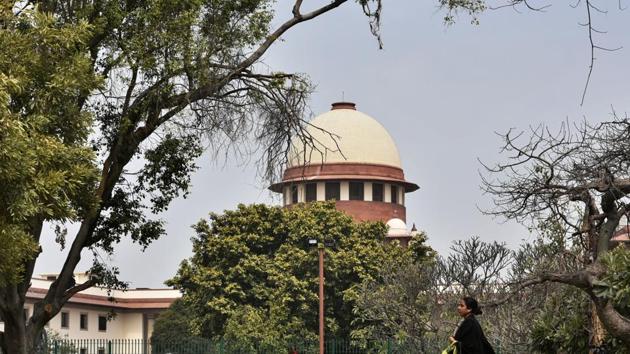Ayodhya mediation: The process may not result in an amicable conclusion
With a representative suit such as this, where the parties are not claiming the property for their personal use and benefit but on behalf of larger communities and interests, valid questions can be raised as to whether such a dispute can be settled through mediation at all.
Can the Babri masjid title suit be settled through a court ordered mediation? The strictly legal answer provided by the Constitution bench of the Supreme Court (SC) is: Yes. There is no legal bar to the SC referring the appeal from the Allahabad High Court judgment to a panel of three mediators (notwithstanding the problematic inclusion of Sri Sri Ravi Shankar). The feeble legal ground raised by some of the parties to the appeal opposing such mediation has no basis in the law as the court correctly pointed out.

There are, however, deeper questions that arise when a representative suit such as the Babri masjid title suit is referred to mediation. Mediation is an out-of-court process in which parties are encouraged to set aside their animosities in a non-adversarial setting and arrive at a binding settlement to resolve their differences amicably. Theoretically, all civil cases can be referred to mediation and, in the hands of a skilled and patient mediator, there is no reason why parties cannot work out their concerns in a non-confrontational and amicable manner.
In India, mediation is largely resorted to in matrimonial cases and family disputes within the court system. We have also seen an interstate boundary dispute being referred to a panel of mediators, which included Sriram Panchu who is on the present panel. Recently retired Justice Kurien Joseph famously was a fan of mediation, whether it involved matrimonial issues or even corporate disputes. The success or failure of such a process can depend on the willingness of parties to walk that extra mile and the wisdom of the mediator in helping them along the path.
However, with a representative suit such as this, where the parties are not claiming the property for their personal use and benefit but on behalf of larger communities and interests, valid questions can be raised as to whether such a dispute can be settled through mediation at all. Whereas a representative suit merely makes the person filing it make legal and factual claims on behalf of a group of people, asking such a person to go through mediation requires something quite entirely different. It asks the person filing the suit to not just make legal arguments, but also be a spokesperson on behalf of the people represented and also protect their interests in the mediation itself. This is an expansion of the role of the parties to the suit that the parties may not be willing or able to take up.
While the cause title of the Babri masjid suit may have the names of M Siddiq, Mahant Suresh Das and others, it is really a dispute between Hindus and Muslims over the land in question. While the parties mentioned may be legal representatives of these groups in court on a legal question, can they, outside the court, claim the authority and legitimacy to arrive at a settlement on behalf of the groups? They are not elected or appointed under any process known to law that might have given them such legitimacy. There is no mechanism by which the parties can assess whether a settlement they’re agreeing to is acceptable to the community that they claim to represent.
While the SC may have been well intentioned in attempting to ensure the settlement of the Babri Masjid dispute through mediation, it has put the parties in a piquant situation not of their choosing, potentially dooming the mediation right from the start. Even assuming that the mediation is limited to the main parties to the dispute (not including the numerous intervenors and plain busybodies), and the mediators attempt a resolution in good faith, it is hard to see this end in an amicable conclusion without questions being raised about its legitimacy.
Alok Prasanna Kumar is a Senior Resident Fellow and heads the Bengaluru office of the Vidhi Centre for Legal Policy.
The views expressed are personal






